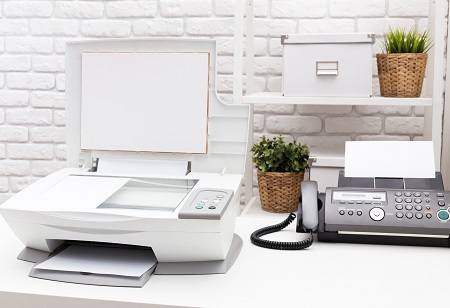A business startup requires the right office equipment to proceed with daily operations. This essential equipment will likely be your biggest purchase for your small business. But it doesn't mean that they have to cost an arm and a leg. You only need to spend your budget on the following equipment to help control your expenses. The following is the list of equipment you will most likely need as you’re starting your business and scaling it.
1. Furniture And Maintenance Accessories
Your office will need the necessary furniture depending on the nature of your business. They must be professional when receiving customers and clients. Your office should also be comfortable and accessible for your employees. Invest in quality office desks, chairs, shelves, and storage cabinets. Some businesses also need maintenance equipment for moving things around, such as sack trucks and cleaning accessories like spill kits. It’s necessary to organize specific spaces to keep them clean and orderly. You can acquire quality furniture and maintenance supplies from manufacturing businesses like ESE Direct.
2. Telephone Systems
Any business in constant communication with customers and suppliers uses telephone systems. Telephones can be considered the primary communication tool because they’re still the easiest to use in a world where technology is evolving. It’s essential to learn and understand the features and services you can use with telephones and telecommunication services. Startup businesses don’t need complex inclusions when finding the right services. Focus on simple but with the best voice clarity for your business needs.
3. Computer With Internet Connection
Today’s various industries thrive on information that one can share, receive, and find online. Offices tend to include responsibilities around web research, word processing, and communication through email. The information processed daily also needs secured digital storage with encryption and data backup.
Computers include various programs that are necessary for office operations. You’ll find cloud-based storage programs that are accessible through the web. You may also invest in external drives for backing up data and when your business needs to expand because you’ll be sharing access with your employees someday.
4. Software
Information is considered the backbone of business industries. That’s why your computer needs software applications that cater to their dedicated purposes such as word processing, anti-virus,
and reliable technology for finance and customer relations management.
Software integration also helps streamline processes and reduce spending on employees.
A single business can use several types of software. They have protective features for fending off hackers and malware that reliable anti-virus software has. Word processing software contains features for reducing errors such as misspellings, incorrect placement of punctuations, and improving the overall quality of documents. It helps with productivity and clarification.
Businesses utilizing CRM systems are enhancing the relationship between the business and the customers and assisting business operations through the following:
• Better customer service
• Improving the retention of customers
• Increasing sales
• Providing detailed analytics
• Centralization of information
• Managing communication with prospective leads
• Increasing efficiency and productivity
• Automating accurate sales reports
• Streamlines internal communication
5. Printers And Copy Machines
When your business needs multiple hard copies of data, you’ll need photocopiers and business printers. You can buy them or opt for rental options such as companies that rent out copiers and printers. If your business can’t afford brand new ones, you can look for rental companies near your business location.
There are various types of printers and copiers that you can choose from. Some printers also come with built-in faxing and scanning features. When selecting the equipment you need, various factors can come to mind. Consider the size of your office because copy machines and printers can both take up space. Document feeders are also another feature you might need if you’re in a business where multiple scanning documents are frequent.
6. Smartphones
While it’s likely that you and your employees will have a smartphone, your office should have a dedicated one for business needs. Team members who deal with clients regularly will find a smartphone useful because it’s portable. A mobile phone helps you and your employees keep productivity up, especially for those who work remotely. They can contact clients, customers, and vendors anywhere from any globe. Some companies will purchase mobile phones for each team member, but you can choose to provide them to essential personnel only as a startup business.
7.Shredder
The importance of shredders in the office setting is invaluable. When your business generates a lot of paper, it’s also necessary to destroy it. Any company that thrives on hard copies of information is responsible for keeping data secure. Information can include the customers' details, confidential notes, and other sensitive data that must not fall into unauthorized hands.
A shredder destroys both the information and the material that retains it. Shredding systems reduce the size of paper and support recycling efforts in the office. Smaller sizes of paper scraps are easier to recycle and turn into brand new paper products. If you can, invest in a shredder for your office.
In Conclusion
The business equipment mentioned is just some of the most essential that you can consider for your business. Remember that as a startup, there are brands that you can choose from that fit your budget. You don’t have to spend too much on high-end models, but you can decide once your business is ready for them.
